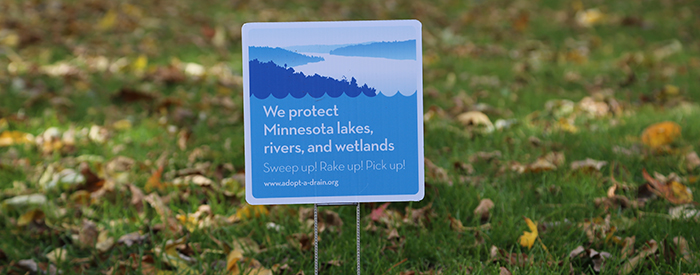
The city participates in and has created a number of programs for residents to support the city's stormwater management efforts.
Adopt-a-Storm-Drain program
Help us protect our lakes, streams and wetlands by adopting a storm drain and keeping it clear of leaves, trash and other debris. The simple act of sweeping up around a storm drain helps protect local lakes and rivers by preventing pollution from entering our shared waterways.
To adopt a storm drain, visit Adopt-a-Drain.org. Simply create an account with your name and address to claim your storm drain. Once you’ve signed up, Adopt-a-Storm-Drain will send you tips on how to clean up safely.
With more than 300,000 storm drains in the metro area, everyone’s help is important in making an impact! Learn more on Clean Water Minnesota's website.
2022 Adopt-a-Storm-Drain annual report - St. Louis Park
Rainwater Rewards program
St. Louis Park’s Rainwater Rewards program offers financial and technical assistance to residents that implement stormwater management projects on their property.
Reduce water pollution by managing yard waste
- Mulch lawn clippings instead of throwing them in the trash or allowing them to collect at the gutter.
Mulching lawn clippings provides nutrients to your lawn, helps keep the lawn hydrated, and reduces the time spent on yardwork.
Visit the University of Minnesota Extension's website to learn more.
- Utilize the City of St. Louis Park’s yard waste program.
The city offers yard waste collection during the residential yard waste season at no additional cost (it is included in your solid waste collection rate). Yard waste includes garden waste, grass clippings, leaves, weeds, wood chips, twigs and branches.
Visit St. Louis Park Yard Waste webpage to learn more.
CAMP lake monitoring
The City of St. Louis Park participates in a Metropolitan Council-sponsored lake monitoring program called Citizen Assisted Monitoring Program (CAMP). City volunteers monitor the water quality in five bodies of water in St. Louis Park. The city depends on volunteers to collect the data for the CAMP program and encourages residents to participate in this fun and important task.
Resources
